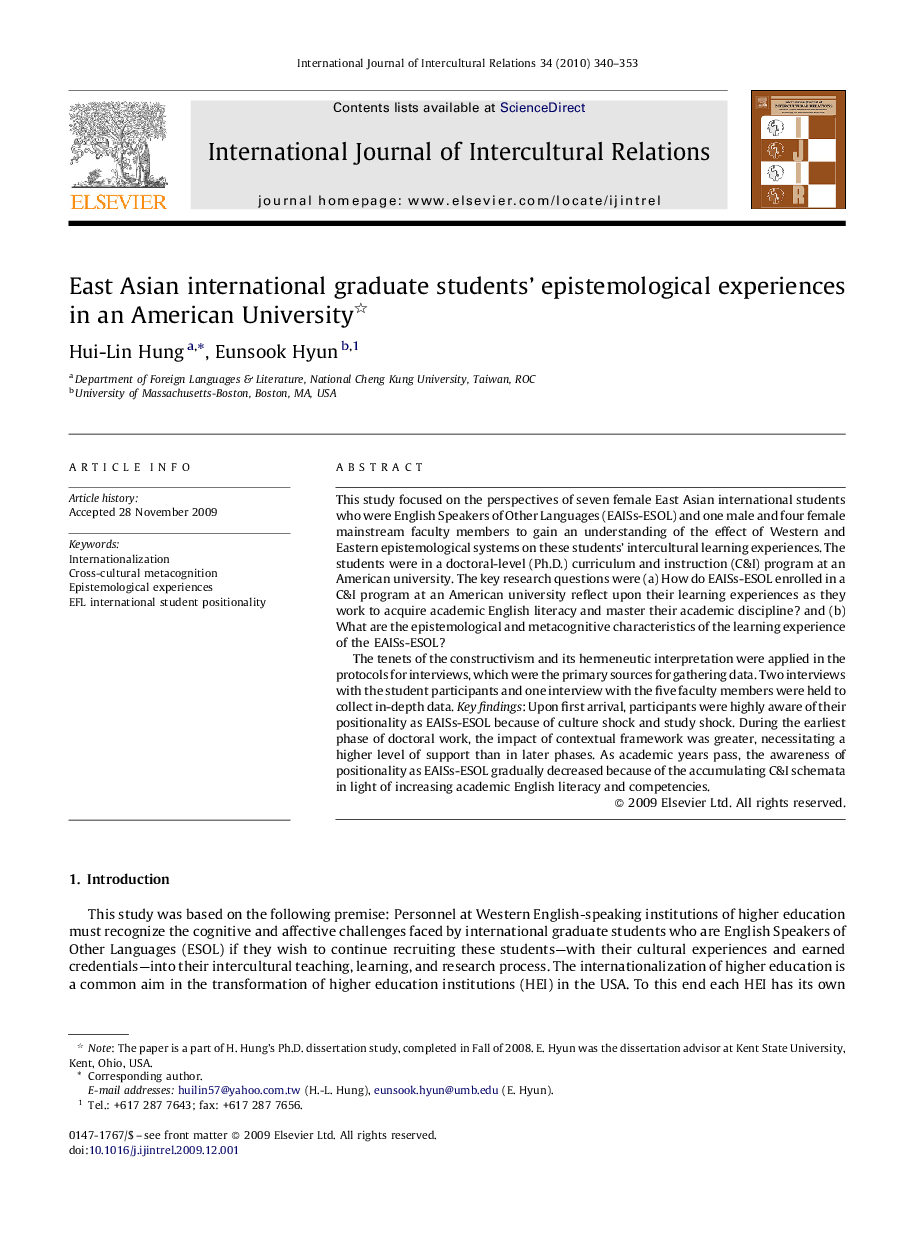| Article ID | Journal | Published Year | Pages | File Type |
|---|---|---|---|---|
| 947313 | International Journal of Intercultural Relations | 2010 | 14 Pages |
This study focused on the perspectives of seven female East Asian international students who were English Speakers of Other Languages (EAISs-ESOL) and one male and four female mainstream faculty members to gain an understanding of the effect of Western and Eastern epistemological systems on these students’ intercultural learning experiences. The students were in a doctoral-level (Ph.D.) curriculum and instruction (C&I) program at an American university. The key research questions were (a) How do EAISs-ESOL enrolled in a C&I program at an American university reflect upon their learning experiences as they work to acquire academic English literacy and master their academic discipline? and (b) What are the epistemological and metacognitive characteristics of the learning experience of the EAISs-ESOL?The tenets of the constructivism and its hermeneutic interpretation were applied in the protocols for interviews, which were the primary sources for gathering data. Two interviews with the student participants and one interview with the five faculty members were held to collect in-depth data. Key findings: Upon first arrival, participants were highly aware of their positionality as EAISs-ESOL because of culture shock and study shock. During the earliest phase of doctoral work, the impact of contextual framework was greater, necessitating a higher level of support than in later phases. As academic years pass, the awareness of positionality as EAISs-ESOL gradually decreased because of the accumulating C&I schemata in light of increasing academic English literacy and competencies.
